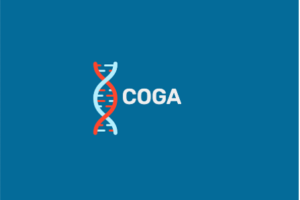On this page you will find a collection of active addiction-related projects ongoing across Rutgers. Learn about on-going research projects and datasets available for analysis. Contact information for each project listed below is provided.
If you are interested in hosting your project on this page, please email rarc@bhi.rutgers.edu with your project details.
-

Collaborative Studies on the Genetics of Alcoholism (COGA)
To inquire about data access, email Dr. Danielle Dick (Danielle.m.dick@rutgers.edu) and Dr. Jessica Salvatore, jessica.salvatore@rutgers.edu.
-

The College Pile Up study
If you are interested in working with this dataset, please contact Dr. Jennifer Buckman, jbuckman@rutgers.edu.
-

Compound RUEC2-118 a fast-acting treatment for general anxiety and panic disorder
To inquire about this project, please contact Dr. Jacques Roberge, jr1257@rutgers.edu.
-

Cultural and Environmental Influences on Precursors to and Early Stages of Alcohol, Nicotine, and Cannabis Use in Black and Latinx Youth
To inquire about this project, please email Dr. Carolyn Sartor, csartor@ifh.rutgers.edu
-

Development of genetically encoded fluorescent reporters for in vitro study
If you are interested in getting involved, please contact Dr. Pingyue Pan, pingyue.pan@rutgers.edu.
-

Ecological Momentary Assessment of Racial Microaggressions and Alcohol Use in African American Young Adults
To inquire about this project, please email Dr. Carolyn Sartor, csartor@ifh.rutgers.edu
-

Effectiveness of the Opioid Overdose Recovery Program on treatment linkage and repeat overdose
To inquire about the project, contact Dr. Nina Cooperman, Psy.D., cooperna@rwjms.rutgers.edu.
-

Enhancement and Expansion of the C3I Program to develop tobacco cessation treatment capacity and infrastructure for cancer patients
To inquire about this project, please contact Dr. Michael Steinberg, steinbmb@rutgers.edu (P30CA072720; PI Libutti).
-

Evaluating Cigarette Relighting Behavior: Prevalence, Correlates, Toxicant Exposure, and Implications for Cessation
To inquire about this project, please contact Dr. Michael Steinberg, steinbmb@rutgers.edu (R01CA260831-01-A1; MPI Steinberg, M.B./Heckman, C./Stepanov, I.).
-

FELONY WOMEN
For more information, contact Dr. Gail Caputo, gcaputo@rutgers.edu.
-

The Finnish Twin Studies
To inquire about data access, email Dr. Danielle Dick, danielle.m.dick@rutgers.edu and Dr. Jessica Salvatore, jessica.salvatore@rutgers.edu.
-

Genetic predisposition to cocaine addiction
To inquire about this project, please contact Dr. Pingyue Pan, pingyue.pan@rutgers.edu.

